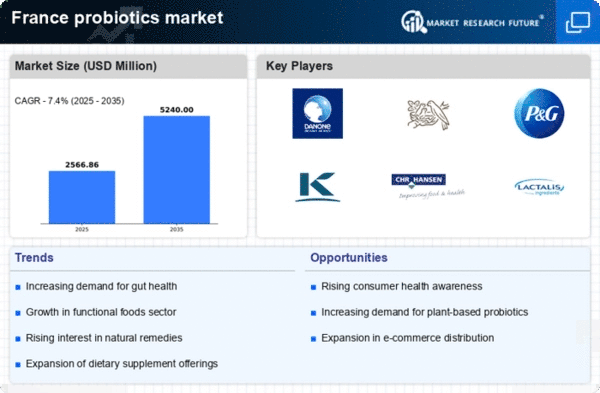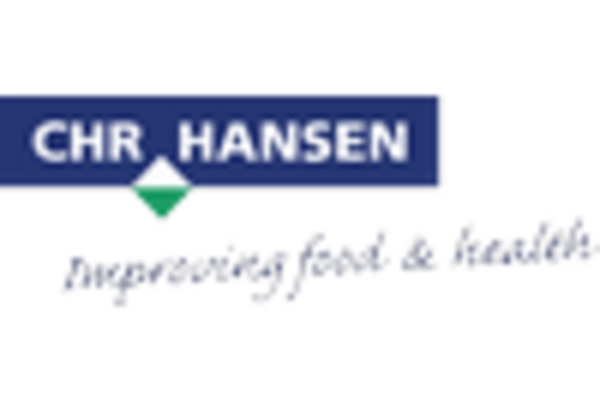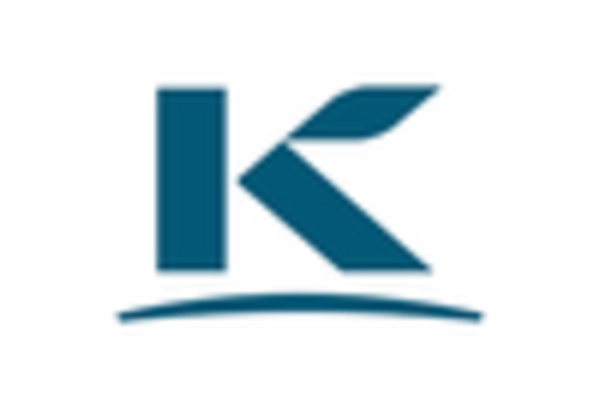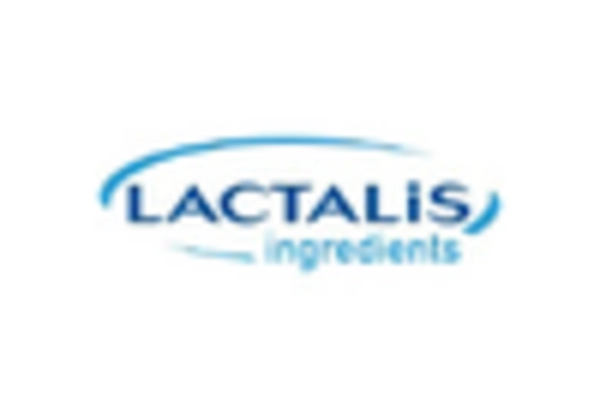Aging Population Influence
France's demographic landscape is characterized by an aging population, which significantly impacts the probiotics market. As the elderly population grows, there is an increasing focus on health maintenance and disease prevention. Probiotics are often marketed as beneficial for digestive health, immune support, and overall vitality, appealing to older consumers. Data indicates that individuals aged 65 and above represent a substantial segment of the probiotics market, with their purchasing power contributing to an estimated €200 million in sales annually. This demographic shift suggests that companies may prioritize developing products tailored to the specific health needs of older adults, thus driving growth in the probiotics market.
Health Consciousness Surge
The increasing awareness of health and wellness among consumers in France appears to be a primary driver for the probiotics market. As individuals become more informed about the benefits of gut health, the demand for probiotic products is likely to rise. Recent surveys indicate that approximately 60% of French consumers actively seek out functional foods, including probiotics, to enhance their overall well-being. This trend suggests a shift towards preventive healthcare, where probiotics are perceived as essential for maintaining a balanced microbiome. Consequently, manufacturers are responding by innovating and expanding their product lines to cater to this health-conscious demographic, thereby propelling the probiotics market forward.
Increased Focus on Mental Health
The connection between gut health and mental well-being is gaining traction in France, which may serve as a catalyst for the probiotics market. Research suggests that probiotics can positively influence mood and cognitive function, leading to a growing interest in products that support mental health. Approximately 40% of French consumers express a desire for foods that promote mental wellness, indicating a potential market for probiotic supplements targeting this aspect. As awareness of the gut-brain axis continues to rise, companies may increasingly develop probiotic formulations that emphasize mental health benefits, thereby expanding their reach within the probiotics market.
Rising Demand for Dairy Alternatives
The shift towards plant-based diets in France is influencing the probiotics market, particularly with the rising demand for dairy alternatives. As consumers increasingly adopt vegan and lactose-free lifestyles, there is a growing need for probiotic-rich plant-based products. This trend is reflected in the market, where sales of non-dairy probiotic yogurts and beverages have surged by approximately 30% over the past year. Manufacturers are responding by innovating and creating diverse probiotic options that cater to this expanding consumer base. Consequently, the probiotics market is likely to benefit from this diversification, as it aligns with the evolving dietary preferences of French consumers.
Regulatory Support for Functional Foods
The regulatory environment in France appears to be increasingly supportive of functional foods, including probiotics, which may bolster the probiotics market. The French government has implemented policies that encourage innovation in the food sector, particularly for products that promote health benefits. This regulatory framework facilitates research and development, allowing companies to explore new probiotic strains and formulations. Furthermore, the European Food Safety Authority (EFSA) has established guidelines for health claims related to probiotics, which could enhance consumer trust and drive sales. As a result, the probiotics market may experience accelerated growth due to favorable regulations that promote the development and marketing of probiotic products.
















